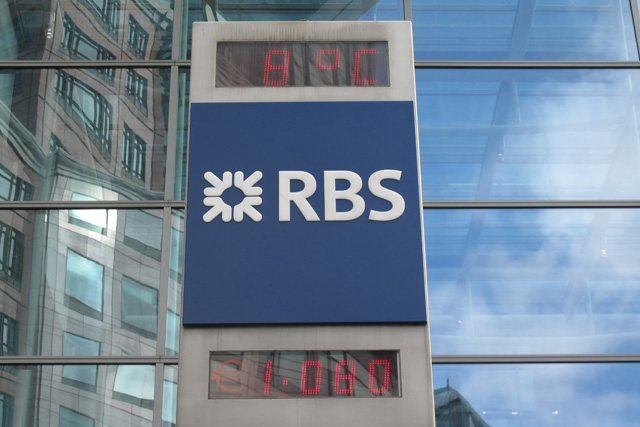
It seems that UK consumers like to hold a grudge. Two-and-a-half years have passed since RBS hate-figure Fred 'The Shred' Goodwin turned to Gordon Brown and begged for a lifeline. As a result, the state now owns more than 80% of the bank. Yet still the public remains disgruntled.
Under the stewardship of lead marketer Helen Page, RBS has strived to win over consumers with its 14-point 'Customer Charter', which promises to improve customer service and be transparent about its progress.
Yet, despite a campaign to publicise the year-one results, consumers reacted with apathy. Meanwhile, headlines that revealed 100 RBS executives earned a seven-figure sum in salary and bonuses only exacerbated customer antipathy.
So, what can RBS do to win over customers?
We asked former Lloyds TSB brand director Alan Gilmour, now head of brand and CRM at consultancy Cogent Elliot, and former Capital One vice-president of brand marketing Justin Basini, founder and chief executive of data-protection service Allow.
DIAGNOSIS: Two industry experts on how RBS can move back into customer credit
Alan Gilmour head of brand and CRM, Cogent Elliot
You have to feel sorry for RBS. On the one hand, the City, the Treasury and we, the taxpayers, want to see the bank returned as quickly as possible to profitability so that taxpayer largesse is repaid. Yet to do this, it must compete in a global and hugely competitive market, so that it can attract high-quality management talent. For this to happen, it has to pay Premier League football-style wages.
On the other hand, paying these kinds of salaries and bonuses angers the public and attracts the kind of negative headlines and comment that no brand wants.
So what to do? RBS must rebuild trust and rapport with customers and other consumers by demonstrating empathy, understanding and humility.
The obvious action to take would be to bow to public demand and stop these high levels of executive pay - an extremely empathetic and humble thing to do. However, this will not happen.
Remedy
- It must continue to build the narrative that a high-performing RBS is in all our best interests, and this requires high-performing players, which costs. But don't expect too much sympathy for this argument.
- Below the radar, its principal banking brands, RBS and NatWest, need to continue to invest in 'helpful banking' service initiatives, which are on the customer's agenda. They are making a useful start on this.
- Develop a strategic partnership with a high-profile national charity, such as Help for Heroes, to generate funds and provide training and employment opportunities. This would provide a platform to build trust and integrity. This truly would be helpful banking.
Justin Basini founder and chief executive, Allow
The biggest opportunity ever to redefine the role of banking in our society has been wasted by brands such as RBS.
The status quo has been re-established despite the flim-flam of 'customer charters' and taglines of 'here for you'. The collapse of RBS and subsequent part-nationalisation was, and perhaps still is, a basis to re-engage humbly with us about what we want from a bank.
To take this path will require consider-able humility, personal vision and leadership from the highest ranks of RBS. Unfortunately, this is completely absent. Clearly, to get off the gravy train when you have spent so many years with your snout in the trough is impossible. Despite all the talk of re-establishing trust, ethics and leadership within banks, the men at the top just don't seem to get the fact that we don't want faceless money-making machines with a 'computer says no' attitude to customers.
Big banks, including RBS, would argue that they and the markets are amoral; (but) I would argue that they are immoral.
Remedy
- Engage staff in the debate on the future of RBS, and what a bank should stand for and do. Get staff to report back and form a vision for an RBS built on what customers want.
- Open doors to local communities, groups and businesses to re-establish the bank as an enabler of positive change by providing advice, engagement and money.
- Tackle the lamentable state of financial education in the UK. Catalyse a serious effort by financial institutions to create a £2bn fund to teach children to understand money. Start by making a £250m donation paid for by stopping all the RBS 'ego' sponsorships such as art and sport.


